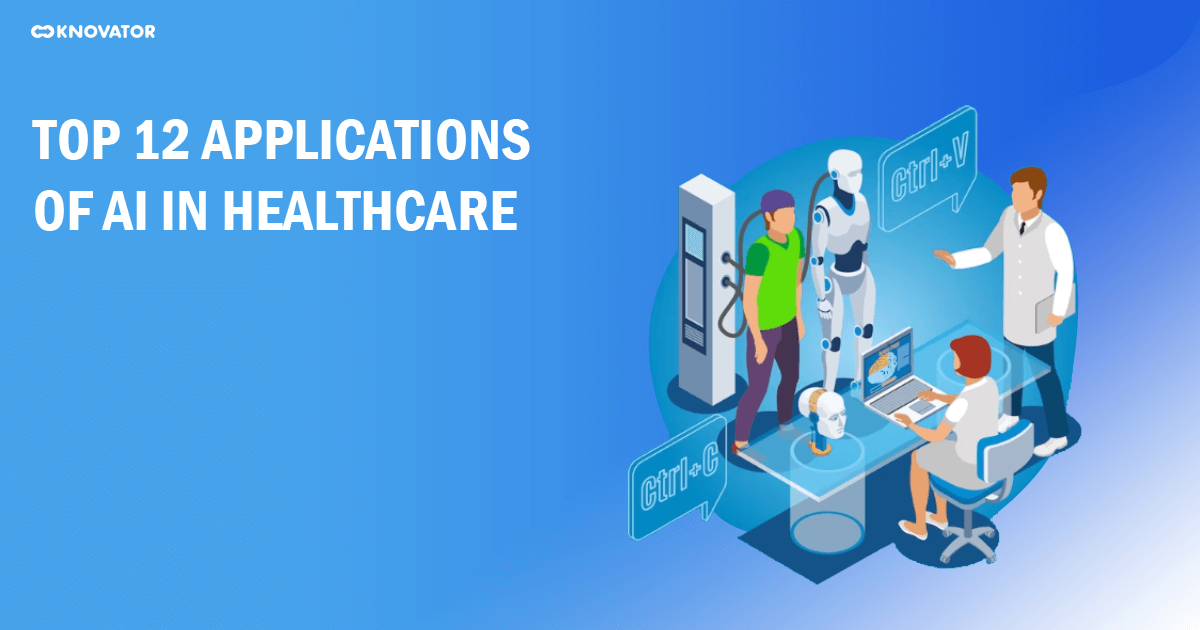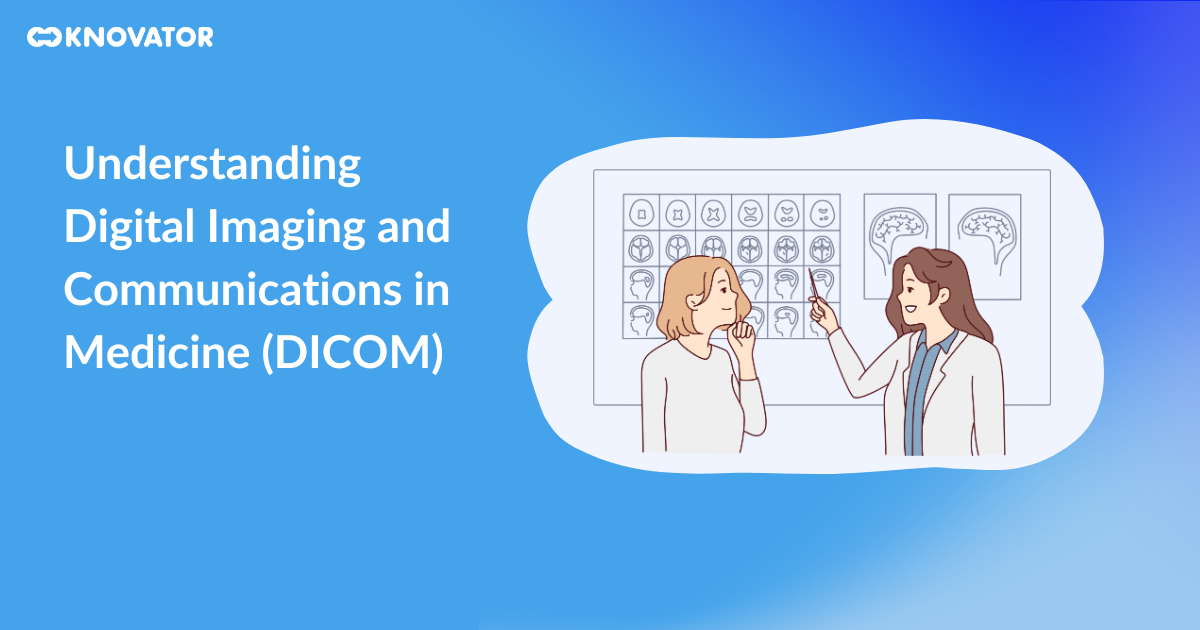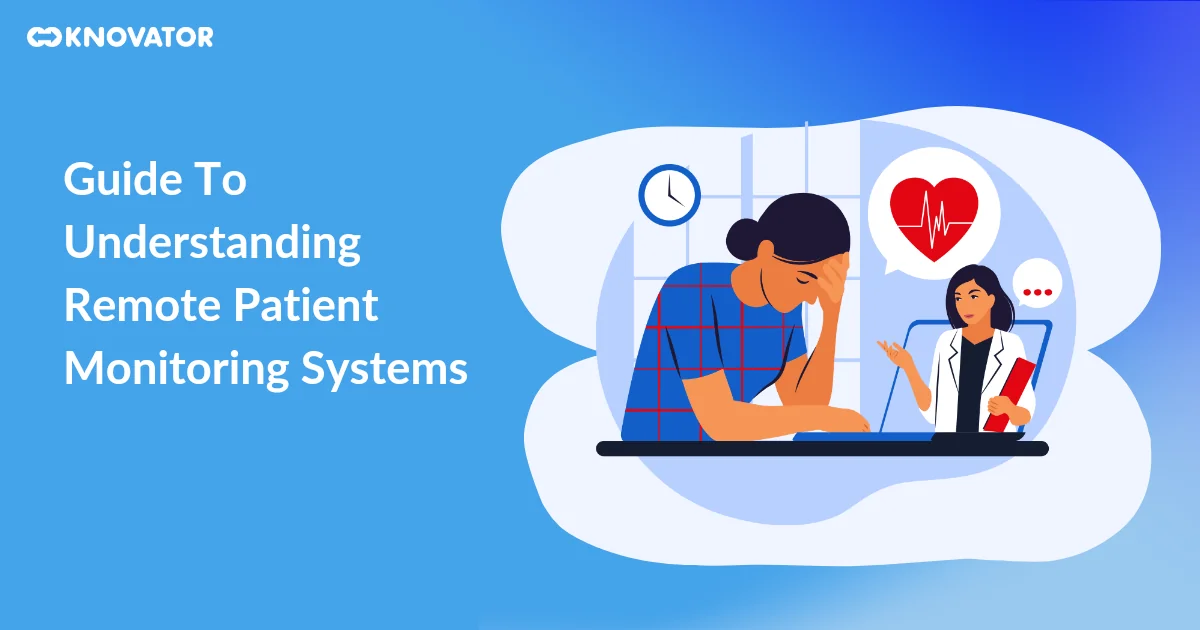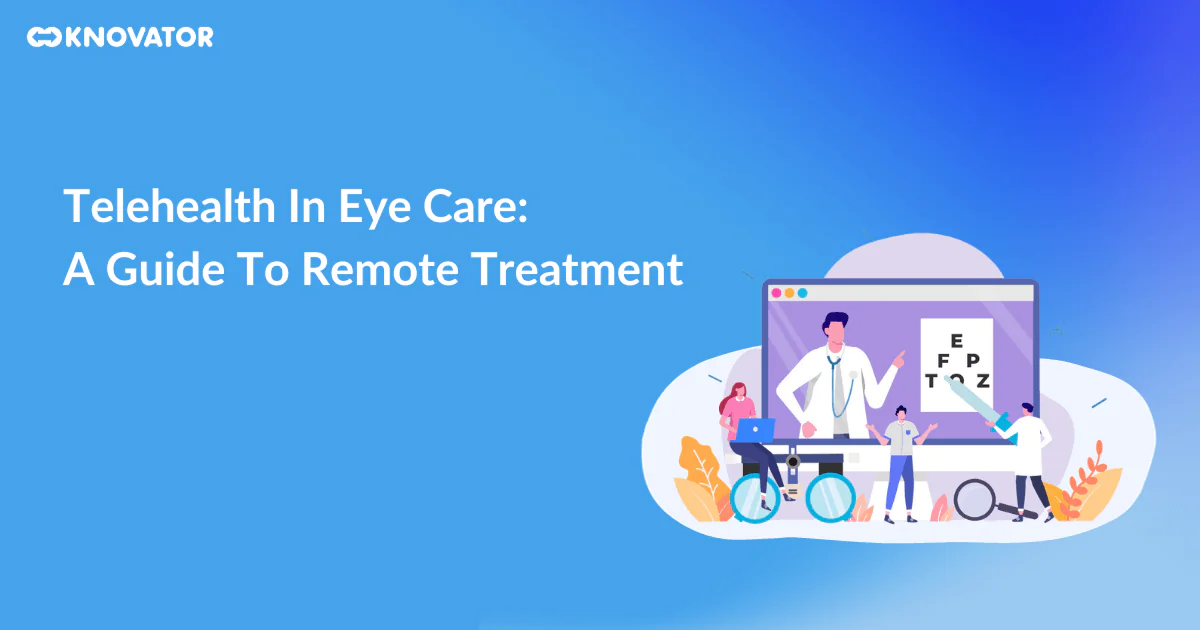Artificial intelligence (AI) is rapidly transforming the healthcare industry. The global market for AI in healthcare is likely to grow from $15.1 billion in 2022 to $187.95 billion by 2030. This clearly shows the immense potential of AI to change various aspects of healthcare.
From diagnosis and treatment to personalized medicine and predictive analytics, the applications of AI are reshaping the industry and opening doors to new possibilities.
In this blog post, we will explore the far-reaching impact of AI. Further, we will delve into the top 12 applications of AI in healthcare that are driving this transformative journey.
So let’s get started!
What Is Artificial Intelligence?
Artificial intelligence (AI) is the ability of machines to perform jobs that typically require human intelligence. It includes various tasks such as learning, reasoning, problem-solving, and decision-making. AI works by using algorithms to process and analyze large amounts of data, allowing machines to make predictions and decisions based on that data.
AI is of two types: narrow AI and general AI. Narrow AI performs specific tasks, like voice assistants or self-driving cars. General AI, on the other hand, can understand and execute any intellectual task that a human can do.
There are many approaches to AI, but they all share the goal of creating systems that show intelligent behavior. Some of the most common approaches to AI include:
- Machine learning
Machine learning is an AI that allows systems to learn without being explicitly programmed. - Natural language processing
Natural language processing (NLP) is the branch of AI dealing with how computers can interpret and generate human language. - Computer vision:
Computer vision is a field of AI that deals with developing algorithms. This technology can extract meaning from digital images or videos.
What Role Does AI Play In Healthcare?
The healthcare industry is being transformed through the use of Artificial Intelligence (AI), which is impacting patient care and management positively. There are various use cases for AI in healthcare that are both diverse and impactful for the betterment of the general population.
One crucial role that AI plays in healthcare is in medical imaging. AI algorithms can process medical images such as X-rays, MRIs, and CT scans, which assists radiologists in detecting irregularities and making accurate diagnoses quickly. This early detection of diseases is beneficial in developing personalized treatment plans.
Another significant application of AI is predictive analytics. By analyzing patient data, AI can identify patterns and predict disease development, readmission rates, and treatment outcomes. This allows healthcare providers to offer better care and reduce hospital readmissions.
AI also contributes to drug discovery and development by analyzing scientific data to identify potential drug options. It helps personalize medical treatments for each patient by considering their unique characteristics and genetics.
Applications Of AI In Healthcare
To give you a clearer understanding, here are the top 12 applications of AI in healthcare.
1. Virtual Nursing Assistants
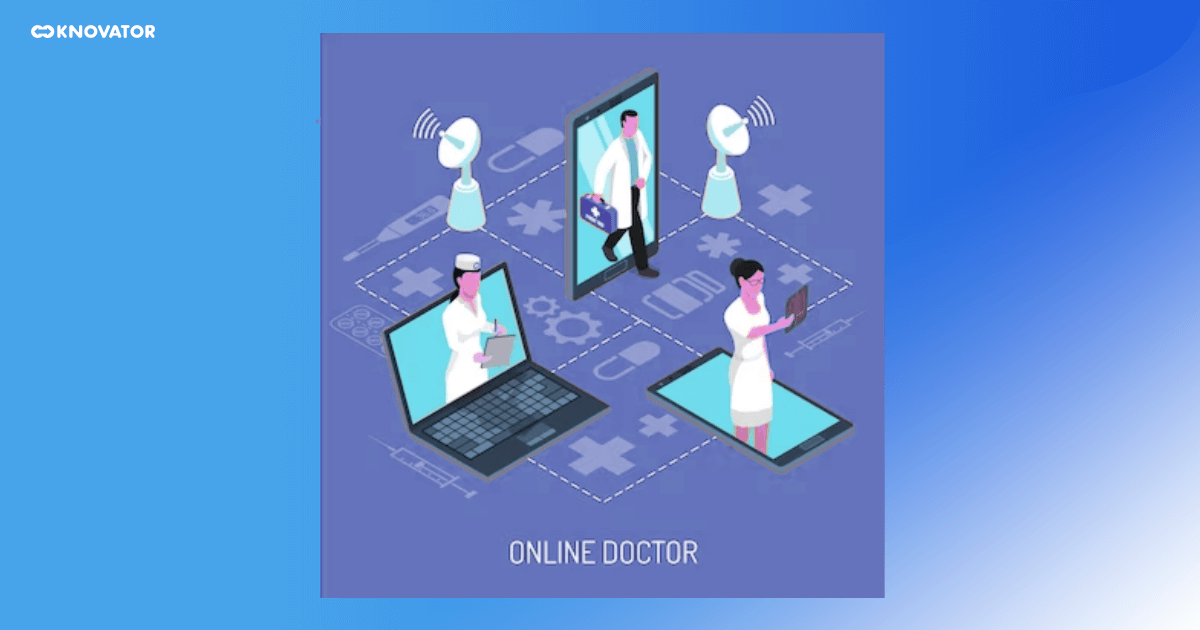 Virtual Nursing Assistants (VNAs) are an innovative application of AI in healthcare. They are used in the healthcare sector to provide personalized patient care.
Virtual Nursing Assistants (VNAs) are an innovative application of AI in healthcare. They are used in the healthcare sector to provide personalized patient care.
They are computer programs that use AI algorithms to support and assist nurses and patients. VNAs can perform various tasks, such as:
- monitoring vital signs
- reminding patients to take medication
- answering their questions
With AI, VNAs can analyze vast amounts of medical data quickly and accurately. This helps doctors and nurses make better decisions about patient care. They can detect patient health record patterns and alert healthcare providers about potential issues. Additionally, VNAs can learn from past patient data to improve their recommendations over time.
Virtual nursing assistants are available 24/7, so patients can get help when needed. Patients can also access them from anywhere, allowing them to use them from home or on the go.
Virtual nursing assistants can help to improve patient satisfaction and reduce healthcare costs.
2. Accurate diagnosis
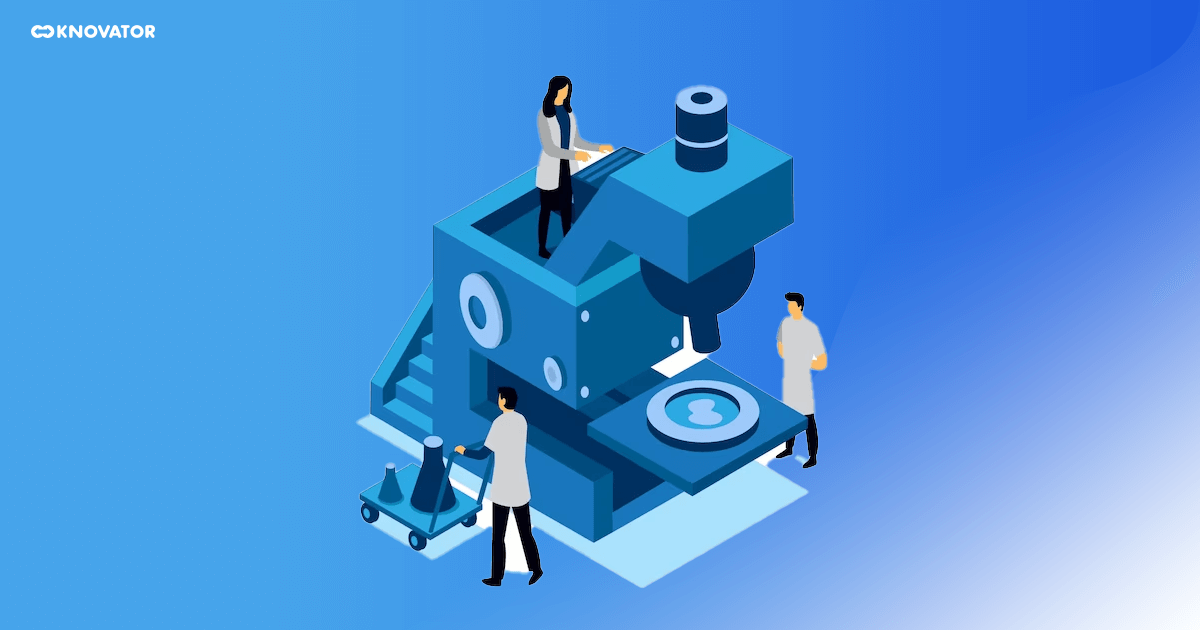 One of the top applications of AI in healthcare is enabling accurate diagnosis. This technology plays a vital role in achieving precise diagnoses. AI systems are trained to analyze vast amounts of medical data, such as patient records, lab results, and imaging scans. This helps doctors make more precise and timely diagnoses to improve patient outcomes and save lives.
One of the top applications of AI in healthcare is enabling accurate diagnosis. This technology plays a vital role in achieving precise diagnoses. AI systems are trained to analyze vast amounts of medical data, such as patient records, lab results, and imaging scans. This helps doctors make more precise and timely diagnoses to improve patient outcomes and save lives.
Artificial intelligence (AI) can detect cancer in medical images more accurately than human radiologists. In a study, an AI tool was able to detect breast cancer with 99% accuracy, compared to 89% for human radiologists. This means that AI tools could help to save thousands of lives by detecting cancer early when it is most treatable.
The increasing accuracy of AI applications in healthcare will have a major impact on the diagnosis and treatment of diseases as technology continues to advance.
3. Treatment of Rare Diseases
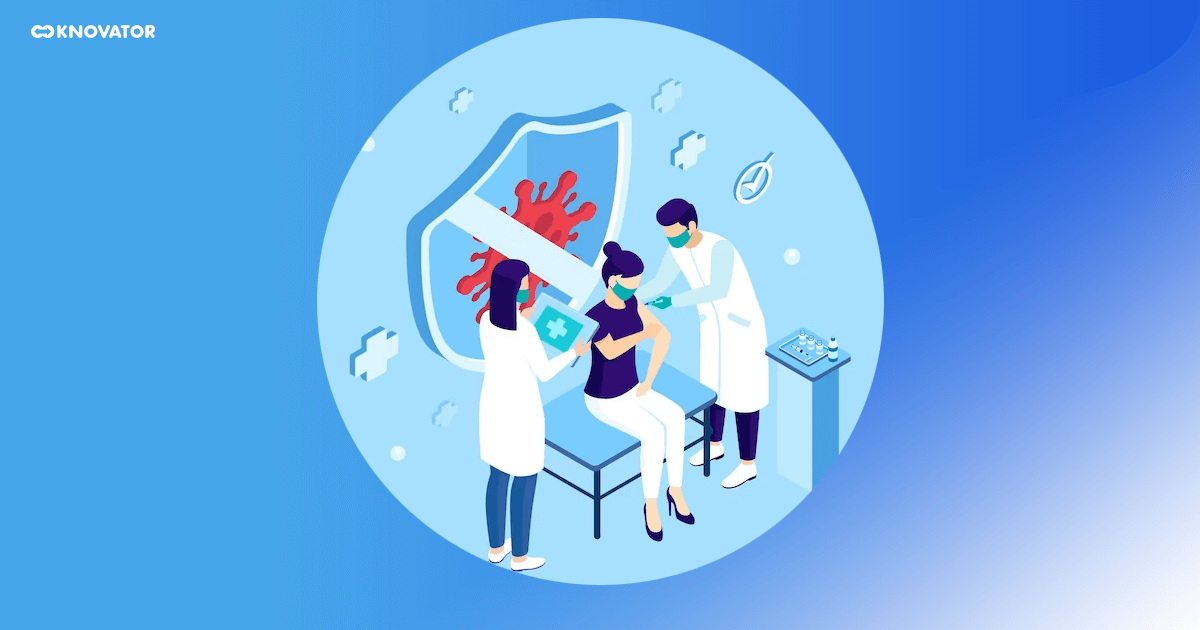 Artificial intelligence (AI) is rapidly transforming healthcare, and its application in the treatment of rare diseases is no exception. AI-powered tools can help to improve diagnosis, personalize treatment, and support patients and their families.
Artificial intelligence (AI) is rapidly transforming healthcare, and its application in the treatment of rare diseases is no exception. AI-powered tools can help to improve diagnosis, personalize treatment, and support patients and their families.
AI-powered diagnostics can analyze large amounts of data to identify patterns that would be difficult or impossible for the human eye to detect. This can result in earlier diagnosis and more targeted treatment.
In addition, AI can personalize treatment of rare diseases. By considering a patient’s genetic makeup, medical history, and other factors, AI can help identify the most effective treatment options.
By improving diagnosis and personalizing treatment, AI can help to improve the quality of life for people with rare diseases and their loved ones.
4. Customer Service Chatbots
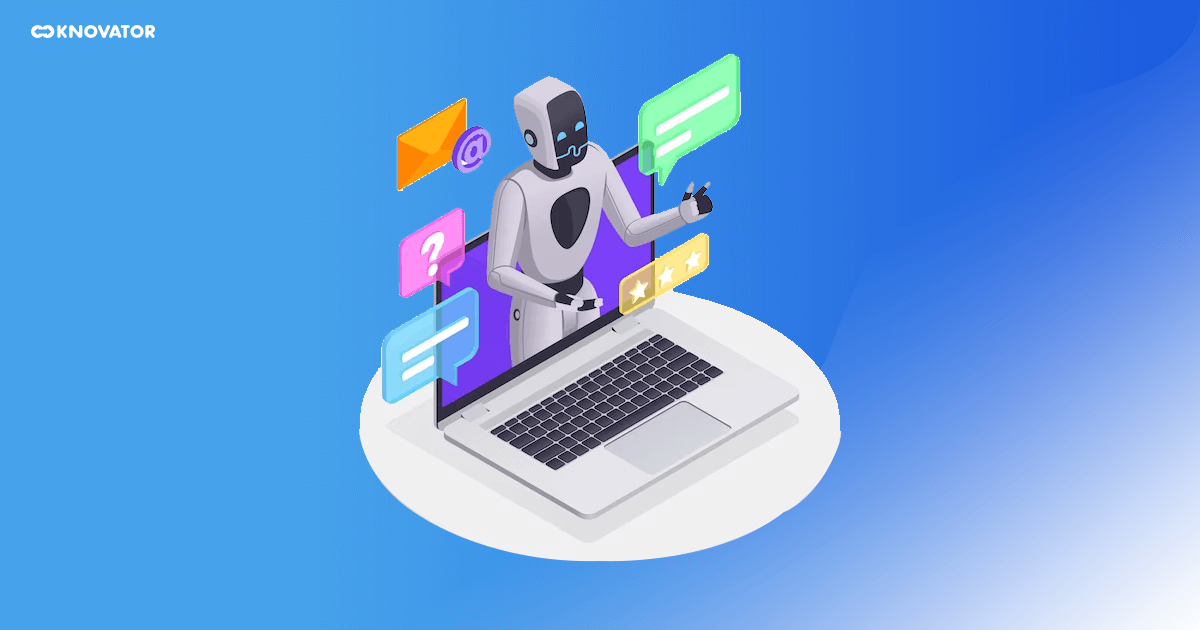 Customer Service Chatbots are a fascinating application of Artificial Intelligence (AI) in healthcare. These chatbots use AI technology to help and interact with patients, providing them with quick and correct information.
Customer Service Chatbots are a fascinating application of Artificial Intelligence (AI) in healthcare. These chatbots use AI technology to help and interact with patients, providing them with quick and correct information.
For instance, when someone has a health-related question or needs service scheduling appointments, the chatbot can answer their questions and guide them through the process.
AI-powered chatbots in healthcare are designed to resemble human conversation. This makes it easier for patients to communicate and get the needed help. They can also collect patient data and direct them to suitable healthcare services. Finally, they are a great example of how AI in healthcare enhances services and improves patient experiences.
5. Management of Medical Records and Other Data
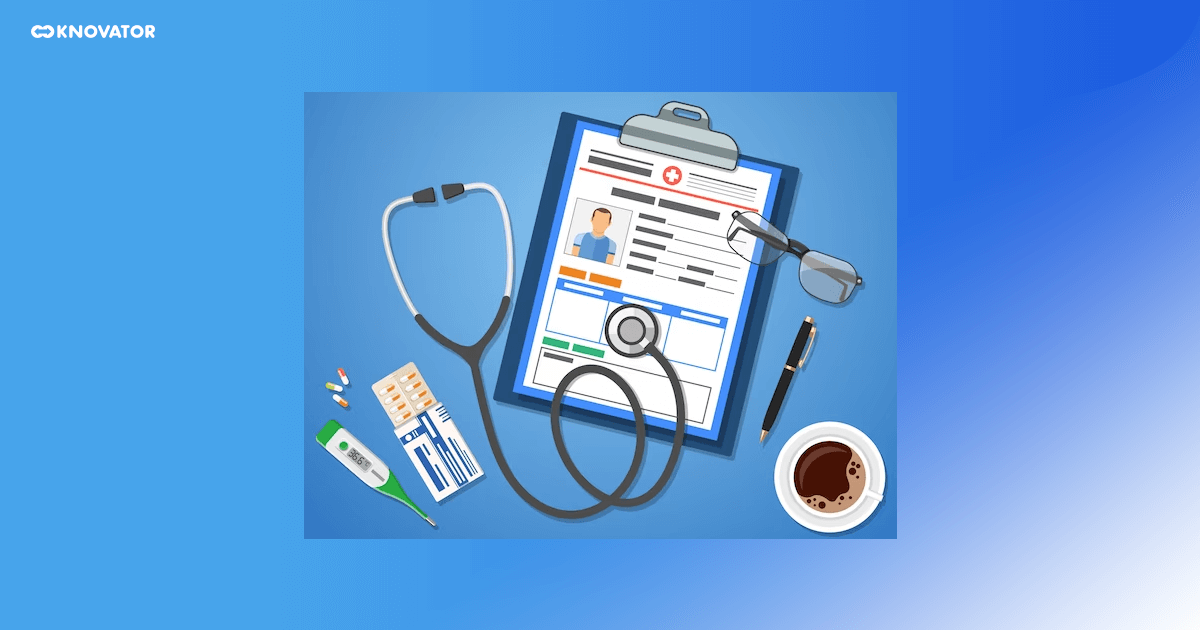 One of the most promising areas for AI in healthcare applications is the management of medical records. AI can automate tasks, improve accuracy, and make data accessible to doctors and patients.
One of the most promising areas for AI in healthcare applications is the management of medical records. AI can automate tasks, improve accuracy, and make data accessible to doctors and patients.
Here are some of the ways AI helps manage medical records and other data in healthcare:
- Automating tasks: AI can automate many manual tasks involved in managing medical records, such as data entry, coding, and billing. This can free up clinicians to focus on providing care, and it can also help improve data accuracy.
- Improving accuracy: Using AI can help identify errors in medical records and improve the accuracy of diagnoses. This may lead to better patient care and reduced costs.
- Making data more accessible: AI can make medical data more accessible to healthcare providers and patients.
6. Performing repetitive tasks
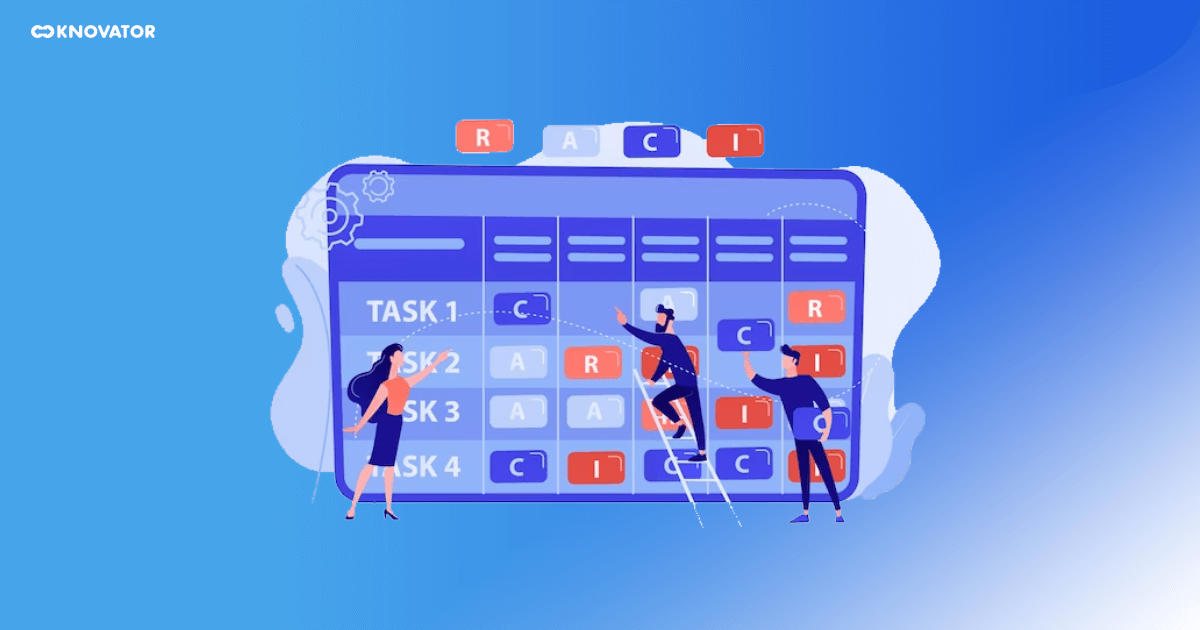 AI rapidly transforms the healthcare industry with a wide range of applications that improve patient care and reduce costs. Healthcare AI applications help automate repetitive tasks.
AI rapidly transforms the healthcare industry with a wide range of applications that improve patient care and reduce costs. Healthcare AI applications help automate repetitive tasks.
Many repetitive tasks in healthcare are time-consuming and labor-intensive. It includes data entry, scheduling appointments, and managing patient records. AI can automate these tasks, freeing healthcare professionals to focus on more complex and patient-facing work.
For example, AI-powered chatbots can answer patients’ questions, schedule appointments, and provide basic medical advice. AI can also be used to analyze huge amounts of patient data to examine trends and patterns. This can help clinicians make better diagnoses and treatment decisions.
The use of AI in healthcare is still in its early stages. Still, it has the potential to create a revolution.
7. Digital Consultation
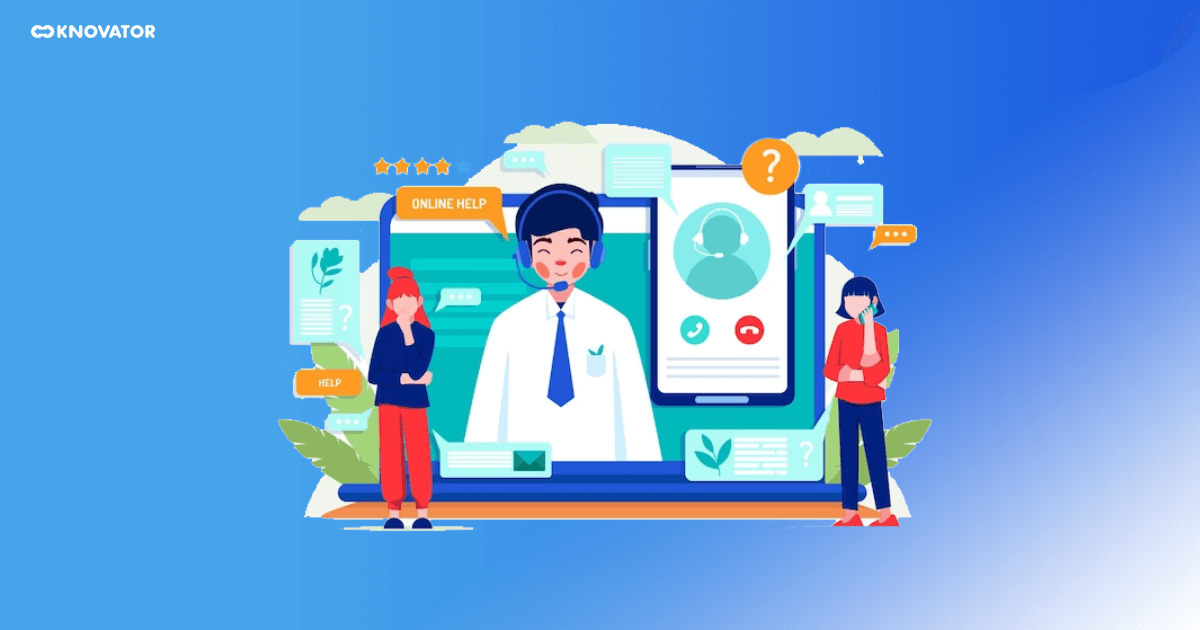 Digital consultation is a growing trend in healthcare, and artificial intelligence (AI) plays a crucial role in its development. AI-powered chatbots can now provide patients with basic medical advice and answer their questions, freeing up doctors’ time to focus on more complex situations.
Digital consultation is a growing trend in healthcare, and artificial intelligence (AI) plays a crucial role in its development. AI-powered chatbots can now provide patients with basic medical advice and answer their questions, freeing up doctors’ time to focus on more complex situations.
AI can analyze large datasets of medical records, identifying patterns and trends that can help doctors to make better diagnoses and treatment decisions. In addition, AI can help develop new drugs and treatments and improve healthcare delivery systems’ efficiency.
By making healthcare more accessible, affordable, and efficient, AI applications in healthcare can help to improve the health of people all over the world.
8. Managing Medication & Reducing Dosage Errors
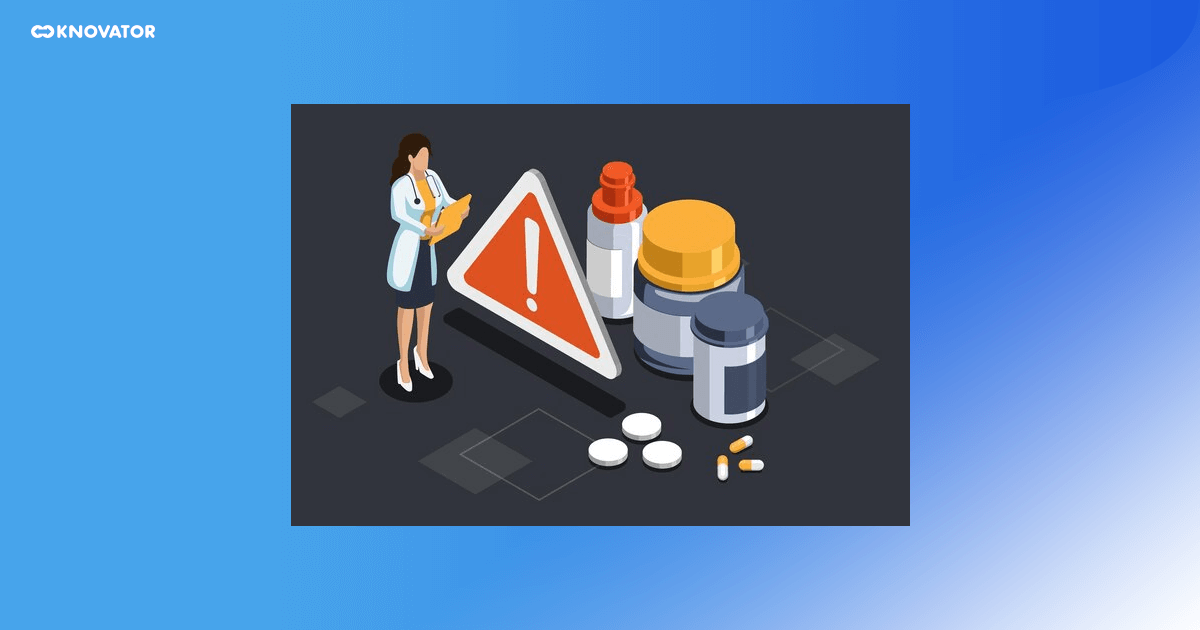 In healthcare, managing medication schedules is critical. AI applications in healthcare can monitor patients’ medication schedules, provided they take the correct dose at the right time. These applications send reminders to patients and help them stick to their medicinal routines. They also track the use and provide valuable data for physicians to review and adjust treatments.
In healthcare, managing medication schedules is critical. AI applications in healthcare can monitor patients’ medication schedules, provided they take the correct dose at the right time. These applications send reminders to patients and help them stick to their medicinal routines. They also track the use and provide valuable data for physicians to review and adjust treatments.
Moreover, one of the essential concerns in healthcare is dosage errors. It’s a common issue that can lead to severe outcomes for patients. AI technology can help reduce these errors by cross-verifying the prescribed medicine with the patient’s health data. This ensures the prescribed dose is safe and suitable for the patient’s health.
Using AI in healthcare, particularly in medication management, is essential for patient safety and effective treatment. It optimizes the process, reduces human error, and contributes to better patient health outcomes.
9. Robotic Surgeries
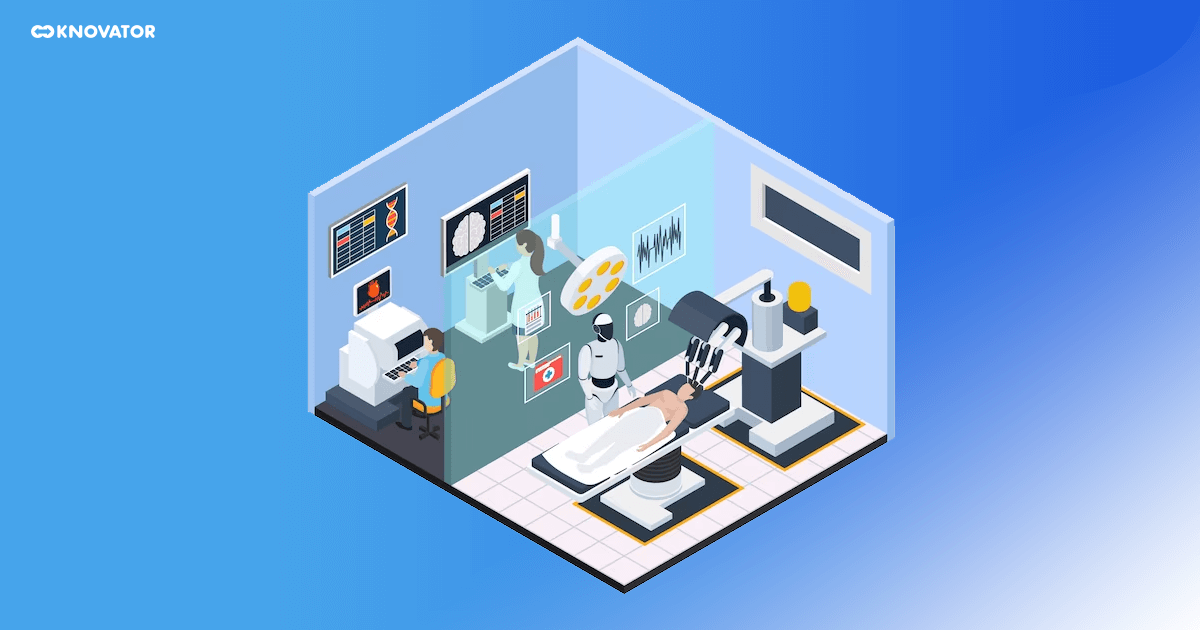 Robotic surgeries are one of the remarkable applications of AI in healthcare. By combining advanced robotics with AI, surgeons can perform complex operations more accurately and efficiently. AI helps robots analyze medical images, track patient movements, and provide real-time feedback to surgeons.
Robotic surgeries are one of the remarkable applications of AI in healthcare. By combining advanced robotics with AI, surgeons can perform complex operations more accurately and efficiently. AI helps robots analyze medical images, track patient movements, and provide real-time feedback to surgeons.
These robots can process large amounts of data and generate insights that help in surgery. They can also adapt to each patient’s unique anatomy, resulting in personalized treatment plans.
Additionally, AI-powered robotic systems can automate repetitive tasks, reducing surgeon fatigue and optimizing the use of operating rooms. Overall, AI in healthcare revolutionizes surgical procedures, enhances patient safety, and improves healthcare.
10. Automated Image Diagnosis
Automated image diagnosis is one of the applications of AI in healthcare that uses algorithms to examine medical images, such as X-rays, CT scans, and MRIs, to detect diseases and other abnormalities. Usage of AI in healthcare can help doctors to diagnose patients more accurately with effective treatment.
There are several different ways that AI can be used for automated image diagnosis. One approach involves training an AI algorithm on a large dataset of medical images that already contain the correct diagnosis. Once researchers prepare the algorithm, it can analyze new images and generate a list of possible diagnoses.
Another approach to automated image diagnosis is to use deep learning. Deep learning algorithms can be used to recognize patterns in medical images that are not visible to the human eye. This can help to improve the accuracy of automated image diagnosis.
11. Clinical Trials
Artificial intelligence (AI) is transforming clinical trials in healthcare. AI can process large amounts of information to find suitable trial candidates, predict outcomes, and even monitor trial progress. This leads to more efficient and effective trials, which can speed up the development of new treatments.
Here are some of the ways AI is being used in healthcare trials:
- Patient recruitment: AI can use large datasets to identify potential trial participants. By using this information, researchers can speed up the selection process and guarantee that trials involve a representative patient population.
- Predictive modeling: AI can predict which patients are most likely to benefit from a particular treatment. This can help to improve the efficiency of trials by focusing on patients who are most likely to respond to the treatment.
- Trial monitoring: AI can actively monitor trial progress and detect potential problems at an early stage. By utilizing this information, researchers can help ensure the safe and effective conduct of trials.
12. Development of New Medicines
AI in healthcare analyzes vast amounts of data to determine potential targets for new drugs, predict their effectiveness, and speed up the overall drug development process.
AI used in healthcare analyzes the genetic data of patients with a particular disease to identify genes associated with the disease. Researchers can use this information to design new drugs that specifically target these genes. AI can also be used to screen large libraries of chemicals to identify compounds that have the potential to be effective drugs.
In addition to identifying potential targets and compounds, AI can help in predicting the effectiveness of new drugs. Machine learning algorithms can analyze data from clinical trials to achieve this. By predicting which drugs are most likely to be effective, AI can help to reduce the number of failed clinical trials and speed up the development of new medicines.
Also Read : Top Telehealth Business Ideas
Pros & Cons Of Artificial Intelligence In Healthcare
The applications of AI in healthcare have both benefits and drawbacks. It is important to find a balance between the two so you can use this technology to its fullest potential.
Pros
- Improved accuracy and efficiency in diagnosis and treatment: AI can process large amounts of data to examine patterns and trends that human experts may miss. This can lead to more quick and accurate diagnoses and more effective treatments.
- Increased efficiency in administrative tasks: AI can automate routine administrative tasks, such as scheduling appointments, maintaining patient records, and processing insurance claims. This can free up healthcare professionals to spend more time providing direct patient care.
- Improved drug discovery: AI can be used to analyze large datasets of patient data to identify new drug targets and predict drug efficacy and potential side effects. This can accelerate the drug discovery process and help to develop more effective treatments.
Cons
- Data privacy and security concerns: AI-powered healthcare systems collect and store large data sets of patient data. This data could be vulnerable to hacking or misuse.
- Bias: AI algorithms are trained on data that is collected from the real world. This data may be biased, leading to AI systems making biased decisions.
- Cost: AI-powered healthcare systems can be expensive to develop and implement.
The Promise Of AI In Healthcare
Undoubtedly, the applications of AI in healthcare have transformed the industry, improving patient care, diagnosis, and treatment.
With AI-powered tools, healthcare professionals can analyze vast amounts of data accurately, leading to faster and more accurate diagnoses. AI also assists in personalized medicine, drug discovery, and robotic surgeries, enhancing patient outcomes and safety.
Additionally, AI use cases in healthcare have revolutionized medical imaging, remote monitoring, and virtual health assistants. However, ethical considerations and data privacy remain crucial. As AI continues to evolve, it holds immense potential for revolutionizing healthcare and shaping a healthier future for all.

